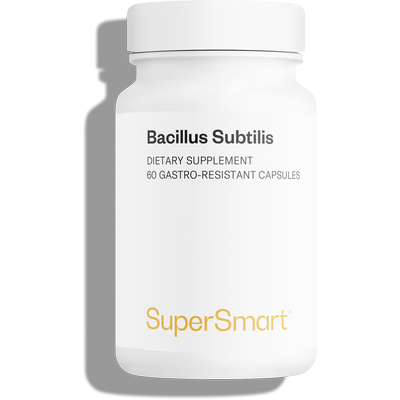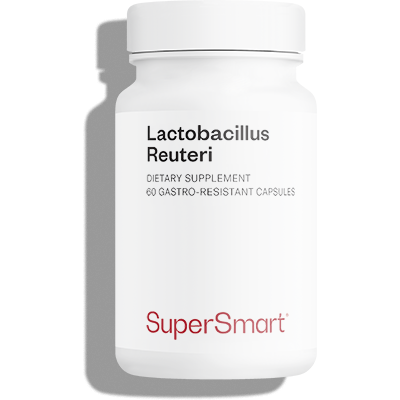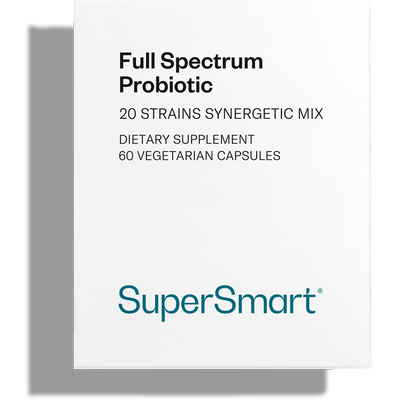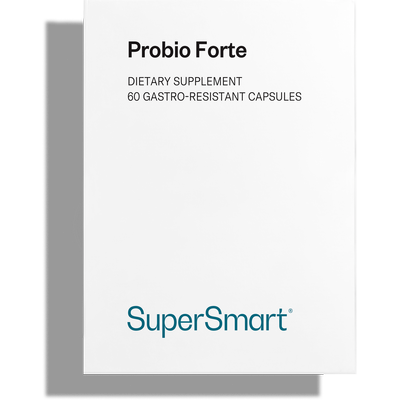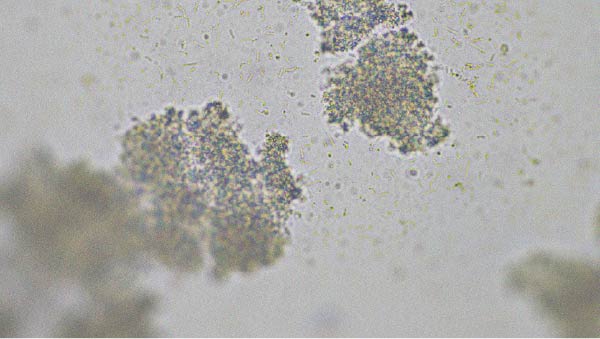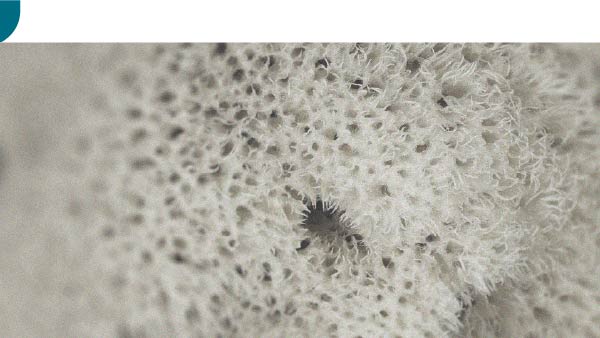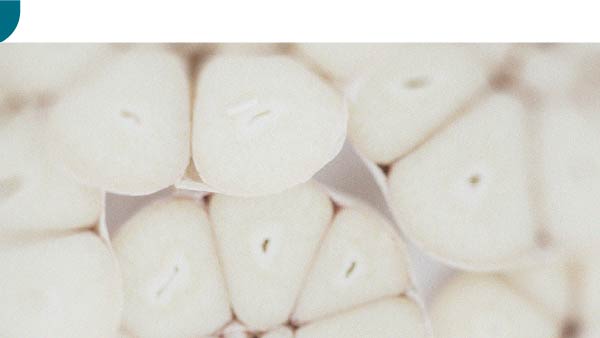Probiotics: how long before eating should you take them?
How long before eating should you take probiotics? Is it better to take them in the morning or evening? Can you take them continuously? We provide the answers to these and other questions.
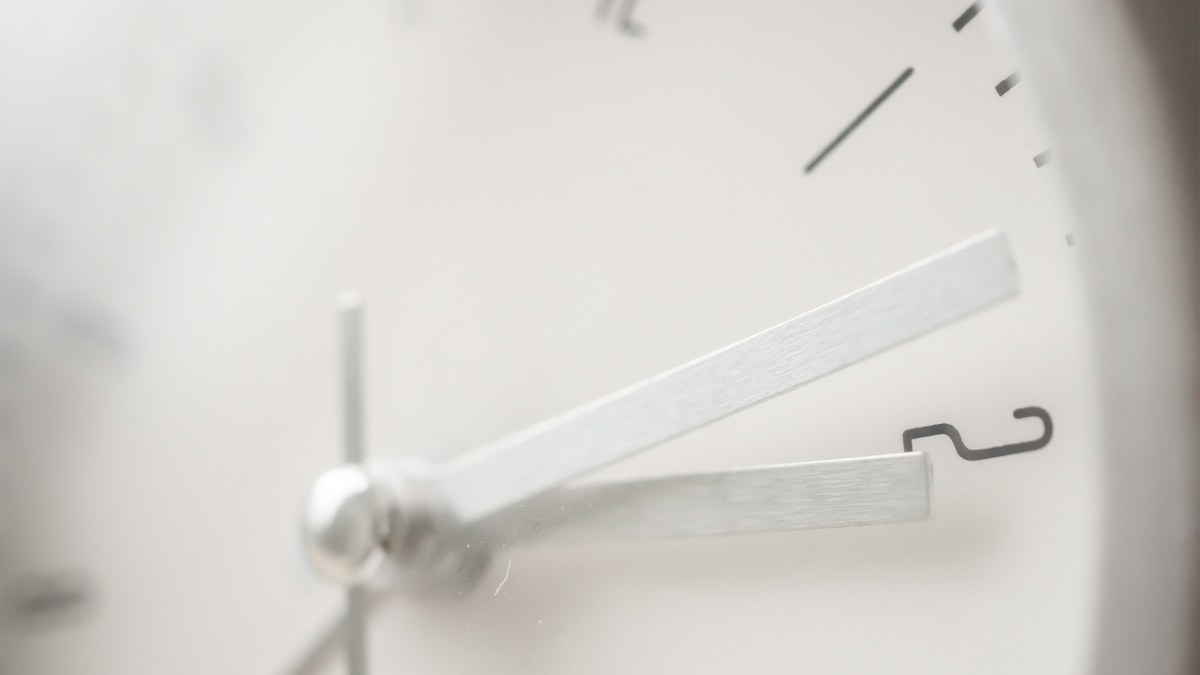
Probiotics: gut-friendly microorganisms
Probiotics are ‘friendly bacteria’ which are normally already present in the human body.
Taking probiotic supplements to boost your levels of beneficial microorganisms is a very effective way of helping to maintain balance in your gut microbiota and support your health in general (1).
But they need to arrive in your gut in the right condition in order to deliver these health benefits…
When should you take probiotics : morning or evening?
It’s a frequently-asked question: what time of day should you take probiotics? Morning or evening?
The truth is it doesn’t really matter whether you take your probiotics in the morning or evening. What’s important is the viability of your supplement (2):
- if you take your probiotics during a period of extended fasting, there’s a risk they will be damaged by gastric juices. But if you take them with a light meal or snack, this will act as a buffer to that stomach acidity and help the probiotics colonise the gut;
- but don’t eat too much ! Taking your probiotics with – or straight after - a heavy meal means they will remain too long in the stomach, blocked by food, and will also end up being damaged by stomach acidity.
For convenience, it’s easier to take your probiotics in the morning, 15-30 minutes before breakfast (but make it a light breakfast, not brunch). That way, your probiotics will retain their efficacy.
However, if you think you’ll forget to take them in the morning, or find they give you a few side-effects at first (such as gas) which are harder to cope with during the day, then you can carry on taking your probiotics in the evening. Just make sure you do so before a light dinner or with a light snack just before bed (when you’ve had a few hours to digest your dinner). You thus have a few different options.
Probiotics: how long before eating should you take them?
First and foremost, it’s important to follow any instructions on the probiotic label.
If there are no specific recommendations, it’s a good idea, as explained above, to take your probiotic in the 30 minutes before – or indeed with - a light meal or snack.
Probiotics: how long before you see any effects?
Generally speaking, probiotics are not one-off cures, so you shouldn’t expect to see an immediate effect in the hours following supplementation.
That’s why we talk about a course of probiotics: it’s more a long-term ‘treatment’ designed to rebalance the gut flora.
Thus it usually takes several weeks of supplementation, alongside an appropriate diet, to feel the first effects of probiotics.
A course of probiotics: how long should it last?
There’s still the question of how long a course of probiotics should last, and how many times a year to take them. Firstly, the period of probiotic supplementation depends on the reason you’re taking them:
- for digestive problems, diarrhoea and IBS, research suggests 1-3 months is required to produce effects (3-5);
- for constipation, several studies point to 1 month as the optimal duration (6-7);
- for the immune system, the recommended period is the whole of autumn and winter, ie, 6 months of supplementation (8-10);
- if the issue is to do with mood, then 4-6 weeks is more appropriate (11-13);
- and for skin problems, supplementation should continue for 2-3 months;
Whatever the circumstances, it’s important to follow the recommendations for each probiotic formulation to optimise benefits.
Can you take probiotics all the time?
No. It’s better to take breaks from time to time, rather than continue supplementing with probiotics for long periods without interruption. This is for two main reasons:
- firstly, the purpose of probiotic supplementation is to contribute to the balance of your gut microbiota, not replace it. Probiotics should only be used as an occasional boost. It’s important to take a break of a few weeks to a few months at the end of a course of probiotics to allow your gut microbiota to re-form by itself;
- secondly, the problems mentioned above can be caused by dysbiosis – an imbalance in the microbiota. Some experts believe that if you supplement continuously with the same microbiotic formulation, containing the same strains, all year round, you risk creating a new imbalance. So not only should you take a break after a course of probiotics, but you should also try changing strains from time to time.
And if your problems persist after taking one or more courses of probiotics, be sure to consult your doctor.
Some examples of effective probiotics
To end, here are 4 examples of effective probiotic supplements and formulations:
- Probio Forte: this formulation contains 5 different species (Bifidobacterium lactis, Lactobacillus acidophilus, casei and plantarum and Lactococcus lactis), all of which are naturally present in our gut microbiota;
- Bacillus subtilis: highly-resistant to extreme conditions, this bacterium has been studied for its potential effects on the immune system ;
- Lactobacillus reuteri: also naturally present in our gut flora, this essential strain has been studied in relation to cardiovascular health. It’s thought to produce an enzyme that can reduce cholesterol absorption in the gut and regulate its metabolism;
- Full Spectrum Probiotic Formula: as its name suggests, this is a particularly comprehensive formulation containing 20 different strains of microorganism, delivering a powerful 36 billion CFU a day. This diversity makes Full Spectrum Probiotic Formula the perfect choice for gaining maximum benefit from probiotics’ effects on the gut microbiota.
SUPERSMART ADVICE
References
- JANDHYALA, Sai Manasa, TALUKDAR, Rupjyoti, SUBRAMANYAM, Chivkula, et al. Role of the normal gut microbiota. World journal of gastroenterology: WJG, 2015, vol. 21, no 29, p. 8787.
- Tompkins TA, Mainville I, Arcand Y. The impact of meals on a probiotic during transit through a model of the human upper gastrointestinal tract. Benef Microbes. 2011 Dec 1;2(4):295-303. doi: 10.3920/BM2011.0022. PMID: 22146689
- Sisson, Ayis & Bjarnason, Randomised clinical trial: a liquid multi‐strain probiotic vs. placebo in the irritable bowel syndrome – a 12 week double‐blind study, https://doi.org/10.1111/apt.12787
- De Chambrun, Neut, Chau et al. A randomized clinical trial of Saccharomyces cerevisiae versus placebo in the irritable bowel syndrome, https://doi.org/10.1016/j.dld.2014.11.007
- Majeed et al. Bacillus coagulans MTCC 5856 supplementation in the management of diarrhea predominant Irritable Bowel Syndrome: a double blind randomized placebo controlled pilot clinical study, Nutrition Journalvolume 15, Article number: 21 (2016)
- Eskesen et al. Effect of the probiotic strain Bifidobacterium animalis subsp. lactis, BB-12®, on defecation frequency in healthy subjects with low defecation frequency and abdominal discomfort: a randomised, double-blind, placebo-controlled, parallel-group trial, DOI: https://doi.org/10.1017/S0007114515003347
- Ojetti et al. The effect of Lactobacillus reuteri supplementation in adults with chronic functional constipation: a randomized, double-blind, placebo-controlled trial. J Gastrointestin Liver Dis. 2014 Dec;23(4):387-91. doi: 10.15403/jgld.2014.1121.234.elr.
- Berggren et al, Randomised, double-blind and placebo-controlled study using new probiotic lactobacilli for strengthening the body immune defence against viral infections. Eur J Nutr. 2011 Apr;50(3):203-10. doi: 10.1007/s00394-010-0127-6. Epub 2010 Aug 28.
- Leyer et al. Probiotic Effects on Cold and Influenza-Like Symptom Incidence and Duration in Children, doi: 10.1542/peds.2008-2666
- Gerasimov et al. Role of short-term use of L. acidophilus DDS-1 and B. lactis UABLA-12 in acute respiratory infections in children: a randomized controlled trial, European Journal of Clinical Nutrition volume 70, pages463–469 (2016)
- Bercik et al (2011). The anxiolytic effect of Bifidobacterium longum NCC3001 involves vagal pathways for gut–brain communication, doi: 10.1111/j.1365-2982.2011.01796.x
- Pinto-Sanchez et al (2017). Probiotic Bifidobacterium longum NCC3001 Reduces Depression Scores and Alters Brain Activity: A Pilot Study in Patients With Irritable Bowel Syndrome, DOI: https://doi.org/10.1053/j.gastro.2017.05.003
- Messaoudi et al (2011). Assessment of psychotropic-like properties of a probiotic formulation (Lactobacillus helveticus R0052 and Bifidobacterium longum R0175) in rats and human subjects, DOI: https://doi.org/10.1017/S0007114510004319.
4 Days
very good expereince
very good expereince
Jelena Đaković
4 Days
Very good products.
Very good products.
Agnes BENDSAK
6 Days
Just OK
Just OK, ordering from company for many years and being safisfied
Lynn Mae
7 Days
Recomendo
Produtos encomendados são recebidos atempadamente e de acordo com o anunciado! Muito satisfeita!
Carla Sofia
7 Days
Everything is great!
Everything is great!
Jonas
12 Days
The delivery was fast and the product…
The delivery was fast and the product is great
SOMMARIVA Gianni
13 Days
Great service and lots of information
Great service and lots of information
Gabi
16 Days
Service Satisfaction
I’m satisfied with the service; it fulfilled what it set out to do.
Anfhony Abreu
19 Days
Original product and fast delivery
Original product and fast delivery. I haven't started it yet, but will do soon.
Vincenza Catania
22 Days
Good quality
Good quality. Good service.
Leonel Guzman
24 Days
Top!!!!!!!!
Top!!!!!!!!
Michael
26 Days
Excellent!
Products are great and delivered fast!
PARDINI Debora
27 Days
From order to receive the product
From order to receive the product, the process is smooth & fast. It’s good to customers.
WONG Mei Ling
28 Days
Fast delivery
very quick delivery to italy. product is good.
Customer
29 Days
Prompt delivry !!👍
Prompt delivry !!👍
SWEET Christine
of experience
your money back
##montant## purchase


